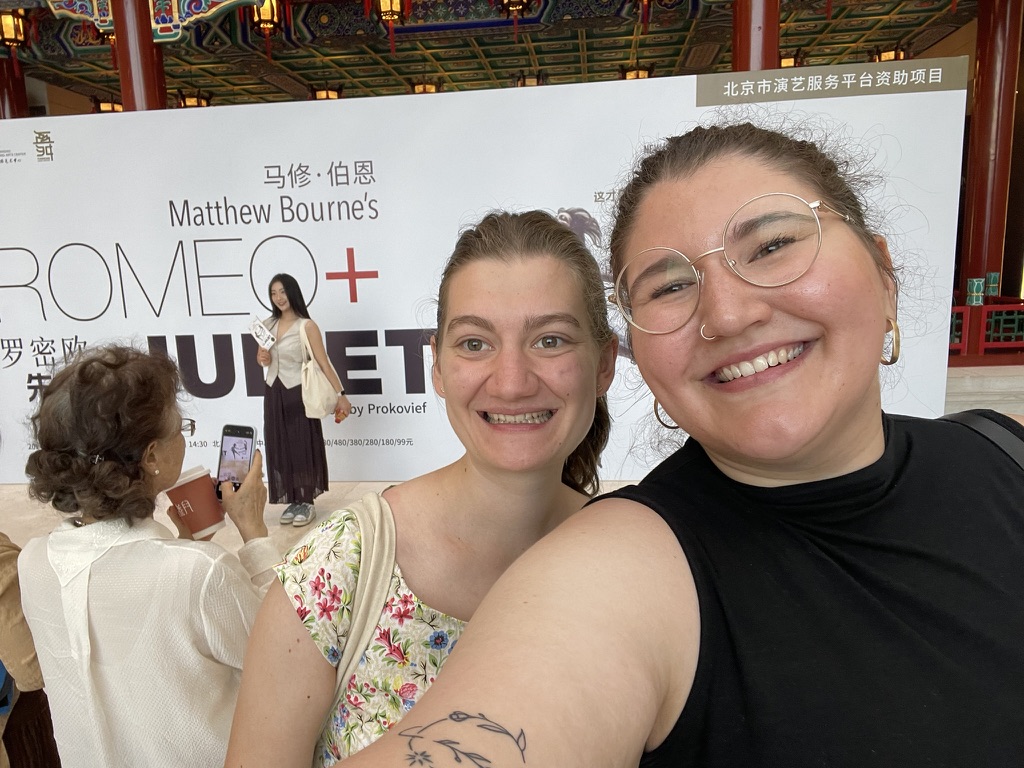Week Five
This past week, I experienced more of the social life Beijing has to offer as well as an exciting conference with UNICEF and Chinese government officials.
Thursday afternoon, we packed up after lunch to all grab separate cabs to take us to the Dongcheng District where we would spend the next few hours at a conference comprising of UNICEF representatives, government officials, representatives from the courts and prosecutors’ offices, and corporation representatives as well. We were fortunate to have been supplied with in-ear radios that a translator would use to keep us apprised of what everyone was saying. Several featured guests gave speeches on the threats to children online.

Most of these speeches discussed the threats to children online both from strangers and those known to them. Here, the speakers discussed things such as the inability of legislators to comprehensively understand the exact threats to children who game online due to the fact they do not understand these games. Another topic widely discussed was the lack of media literacy from these children’s parents and grandparents. Grandparents are often the main caretakers while
parents go to work, however, they struggle to understand this rapidly developing sphere where children can be targeted and harmed. Speakers also touched on those threats from online predators who seek out children in an attempt to groom them into committing sexually explicit acts. Many touched on the fact that we are seeing just a massive boom in children who are groomed online simply because these predators have greater access to these children. Previously, predators could reach only a couple of children offline; however, online they can reach hundreds simultaneously. Others who were more involved in the criminal justice system acknowledged a need to strengthen the enforcement of child protection policies that already exist in Chinese legislation. This is an issue in China specifically because most cases of grooming tend to be handled privately, if brought to the authorities, families will choose to handle these cases amongst themselves and the perpetrator (often asking for compensation from the perpetrator). Unlike in America, a prosecutor cannot proceed with a criminal case without the victim’s cooperation so many of these types of cases fall to the wayside. In addition to parents and grandparents simply not understanding the digital sphere in general, they also lack the understanding of how these types of grooming interactions can cause significant harm to the child. Caretakers often dismiss the children’s emotional damage that comes from being groomed.
Of course, these speakers also touched on steps that can be taken to help protect children in the online world. Out of all of the speakers, save one, each suggested greater media literacy programs for both the children and parents. It was a common sentiment that these children and their caregivers could be educated to identify dangerous situations, how to emotionally respond, and eventually report this behavior to the authorities. Another common suggestion was that more policy research into the issue should be commissioned to gain a greater understanding of the scope of this issue. The third most common suggestion was to shift the onus to the massive platforms that facilitate inappropriate communications between adults and children. Speakers claimed companies could improve their protections for minors by restricting the type of content they can access or pay greater attention to the terms minors are searching for that may lead them to darker parts of the web. Although many suggested generative AI was part of the problem, one speaker proposed that AI can be used to help screen out problematic information online. Many speakers also discussed improving the relationship between parents and schools as children spend just as much time in the care of their school teachers as their parents.
Lily and I were able to grab a quick conversation with the UNICEF representative who gave us some more insights into this topic of child online abuse. She was very clear that research has shown many assumptions regarding child sexual predators online to be false. Most of the time, it is not a stranger randomly contacting a child on the internet to begin the grooming process, but instead, it tends to be a family member or someone the child knows. She was also clear that these families will not appear dysfunctional on the outside but appear to be put together on the outside. She told us, however, it’s difficult to identify these predators fully because these cases are vastly unreported. Less than 30% of children will report the abuse they’ve suffered to a trusted adult in their life, and only approximately 5% of those cases will eventually go on to be reported to the police. This is due to the overwhelming feeling of shame that penetrates victims of online grooming. The UNICEF representative stated she believed the best way to reduce online child abuse was to target children under 18 who commit abuse against others by providing therapy to cut off this type of behavior at the root.
It was extremely enlightening to participate in this event, talking with other individuals who obviously care about this issue as much as I do.
 After work, I also explored more of the city. My coworker, Jiang, invited the other interns to a free showing of the movie, Cure (a 1997 Japanese film) hosted by a film club established and mostly made up of foreigners. Lily and I joked this was the largest group of Westerners we had seen in one room this whole experience. The movie was hosted in a hutong that we probably wouldn’t have noticed otherwise. Before the movie began, we were able to get to know other foreigners in the club. One man was originally from Italy here to complete his PhD in Chinese film studies. We bonded over Florence as we both studied there. Friday another intern, Jagger, invited me to a musical theater karaoke night. Many Broadway musicals are popular in China, but French musicals are just as popular. While I didn’t know the French songs, I was more than happy to sing-shout “Satisfied” from Hamilton. It is customary in China to exchange postcards of drawings or photos of your common interest so I walked away from this group karaoke night my bag a little heavier with postcards from new friends, my throat a little sorer, but feeling more at home.
After work, I also explored more of the city. My coworker, Jiang, invited the other interns to a free showing of the movie, Cure (a 1997 Japanese film) hosted by a film club established and mostly made up of foreigners. Lily and I joked this was the largest group of Westerners we had seen in one room this whole experience. The movie was hosted in a hutong that we probably wouldn’t have noticed otherwise. Before the movie began, we were able to get to know other foreigners in the club. One man was originally from Italy here to complete his PhD in Chinese film studies. We bonded over Florence as we both studied there. Friday another intern, Jagger, invited me to a musical theater karaoke night. Many Broadway musicals are popular in China, but French musicals are just as popular. While I didn’t know the French songs, I was more than happy to sing-shout “Satisfied” from Hamilton. It is customary in China to exchange postcards of drawings or photos of your common interest so I walked away from this group karaoke night my bag a little heavier with postcards from new friends, my throat a little sorer, but feeling more at home.